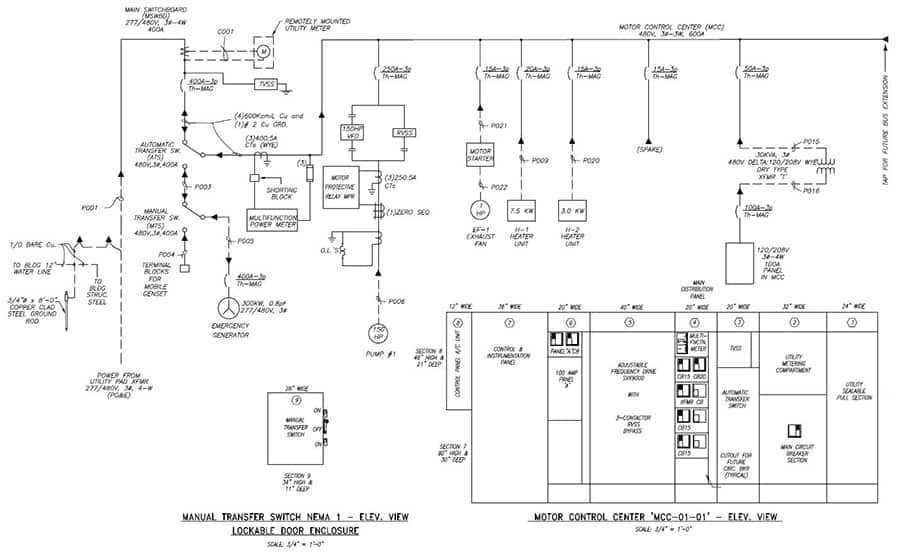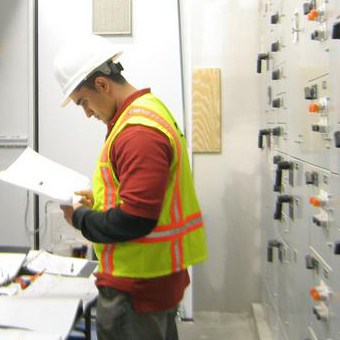Let me share with you 36 first engineering job tips that’ll squash those jitters and help you hit the ground running like a pro.
These nuggets of wisdom come from my own blunders, my engineering buddies’ slip-ups, and some clever tricks I’ve picked up along the way.
#1 Keep your units in check
Messing up your units can be disastrous, even for the slickest design. Just ask NASA about their 1998 Mars Climate Orbiter – a $125-million loss, all because of mixing up English and metric units.
So, do yourself a solid and double-check your units in every calculation and document, especially in this global world of engineers we live in.
#2 Embrace real-world design

Sure, every blueprint looks fantastic on paper. But you’ve got to rock that hard hat and consider real-world constraints. That way, you’ll tackle problems with a practical mindset. So, step out of that office and unlock your full engineering potential.
#3 Fess up to mistakes ASAP
The cost of fixing a mistake skyrockets the longer it goes unnoticed. And trust me, all mistakes come to light eventually.
So, if you goof up, own it right away. I know it’s scary, but you’ll dodge bigger headaches later. Because when that mistake comes to light, fingers will point at you, and the rage will be off the charts.
Remember, it’s your duty as an engineer to point out issues per the code of ethics. Plus, these blunders turn into your most valuable career lessons.
For example, I always delay projects if I spot a flaw in my design work. I don’t care if the client or other engineers get mad. I’d rather postpone a project for a week than cause millions of dollars in damage down the line.
#4 Don’t assume, always confirm
Even if you think you know something like the back of your hand, don’t make assumptions. For example, for a given device submittal, you may find the units are always listed in feet. So, for future submittals on this same device, you assume feet without even checking.
But lo and behold, the units come back in inches, and your entire design goes haywire. So, play it safe and verify your assumptions to sleep better at night.
#5 Never blindly accept software results
Don’t blindly trust outputs from software or spreadsheets. Always give your results a reality check. Garbage in, garbage out, folks. If your inputs stink, your outputs will too.
And remember, software or spreadsheets can have errors programmed in. Double-checking never hurts.
#6 You’re never flying solo on a project
Feeling alone with a project? Help is just a shout away.
Ask other engineers, or even find experts online. In the end, we all need help sometimes. We’re all standing on the shoulders of engineering giants.
#7 Don’t reinvent the wheel
Don’t try to be MacGyver. If a simple solution exists, use it. No one will pat your back for overcomplicating things. But if something goes wrong, you’ll look like a dope for not using a proven solution.
#8 Trust, but verify vendors
Even with trusted vendors, always double-check their documents. I’ve caught errors in product submittals from well-known global vendors.
Remember, people put these packages together, and people make mistakes. It happens more often than you’d think!
#9 Show respect to manual workers

Every project is a team effort. Treat everyone with respect. Your engineering degree doesn’t make you better than anyone else. In fact, many manual laborers will teach you a thing or two.
#10 Use critical thinking, even if you’re told there’s only one way
Don’t blindly accept truths, no matter the source. Ask questions if you’re even 1% unsure. We all make mistakes, no exceptions.
Remember when the smartest minds thought the Earth was the center of the universe?
#11 Know your stuff before you dive in
Even the simplest devices can turn into a puzzle once taken apart. So, understand exactly how something works before you dismantle it. Especially if you don’t have a handy manual around.
I recommend snapping pictures step by step when disassembling anything. That way, you won’t be left scratching your head with a gazillion parts glaring back at you.
#12 Stay humble
You don’t know it all. Even if you’re a big shot in your field, it just means you know more than most folks.
Stay humble to keep learning and avoid slip-ups. Getting cocky leads to relaxation, and that’s when you stop double and triple checking your work. Personally, gazing at the stars in the night sky brings me back to earth.
#13 Double and triple-check your work
All engineers goof up. But by checking your work, you can minimize your blunders.
I like to check my work after a couple of days’ break. It clears my head and helps me spot errors I missed earlier. Here are some articles I’ve written on how to check your work:
- How to check engineering drawings? 8 things to know
- 5 step process to checking engineering calculations
#14 Think of everyone using your design
Always consider everyone who’ll use your design. Don’t design selfishly just to make your life a breeze.
Imagine a project requires conduit routing around a pond, but you run it straight through the pond. Sure, you save design time by skipping pull boxes, but you make life harder for contractors. Plus, they’ll think you’re a dunce!
#15 Put it all in writing
Don’t blindly trust folks, no matter how trustworthy they seem. When problems arise, finger-pointing starts. Especially in engineering, where one hiccup can cost a fortune.
So, keep everything in writing for your records and safety. Even document important phone calls. Try writing an email summarizing your chat and ask the other party to confirm the details. If they don’t respond, at least you have evidence you emailed them.
#16 Save your boss’s sanity; make decisions on your own
Avoid bombarding your boss with every tiny project detail. Not only will you drive them up the wall, but you’ll also hinder your growth and confidence. Imagine if your boss weren’t around to help – what would you do then?
#17 Make your work presentable for others
Tailor your work to your audience. When presenting to fellow engineers, include clear, straightforward technical notes.
For non-engineers, use everyday language. And remember, overcomplicating your content to seem smart backfires. As Einstein wisely said,
“Everything should be made as simple as possible, but no simpler.”
#18 Admit mistakes, then offer solutions
Embrace your errors without making excuses to become a better engineer. It might be scary, but consider the benefits:
- Earn respect from peers
- Gain knowledge
- Prevent costly blunders and protect lives
When you own up, also propose solutions to demonstrate you’ve learned and reflected on your mistake.
#19 Create a systematic design process

Instead of tackling every design problem from scratch, establish a systematic process for your designs. This will not only streamline your work but also enhance your designs while minimizing errors.
As you gain experience, you can refine and expand your design process, much like perfecting a recipe through practice.
#20 Don’t make the same mistake twice
We all make mistakes, but the key is to learn from them and avoid repeating them. For instance, choosing the wrong transformer for a substation could cost millions in damages. Your boss or client might forgive you once, but making the same mistake again could cost you your job. Keep that in mind and take these tips to heart to prevent making the same blunders twice.
#21 Don’t assume others know
Even if an engineer has decades of experience, don’t assume they understand what you’re talking about. Some people bluff through conversations to avoid sounding ignorant. So, when you meet someone new, make sure you’re both on the same page to prevent issues down the road.
#22 Dial down the logic
When interacting with non-engineers, try to empathize with their perspective rather than solely relying on your engineering mindset. In customer support, for example, strive to understand their concerns and offer solutions without dissecting their logic.
#23 Keep organized with to-do lists
Use daily, weekly, and monthly to-do lists to stay organized and ensure you don’t forget important tasks. I recommend updating your lists as new tasks pop into your head.
#24 Embrace your inner child and ask “why?”
Keep asking “why?” until you’re totally satisfied with the answer. Don’t sweat about looking silly with your questions.
I’ve asked loads of stupid questions, and most of the time, I’ve uncovered potential problems. Don’t just go with the flow hoping someone else will spot a mistake. That’s how engineering disasters happen.
#25 Stick to facts and don’t speculate
You might think your speculations don’t matter much in client meetings, but as an expert, non-engineers will cling to your every word. Your words can come back to haunt you. Trust me, I’ve been there.
Now, I stick to the facts and save the speculative talk for my internal team. Of course, if you become a marketing whiz like Elon Musk, then you can play around with speculation.
#26 Keep ’em accountable
When someone says they’ll do something, hold them to it. If accountability vanishes, project timelines crumble and design quality takes a hit.
That’s why it’s crucial to note the date and details when someone commits to a task. This way, you can hold them responsible if the blame game starts. Otherwise, you might be blamed for something you didn’t do.
#27 Stay up-to-date with the latest files
When kicking off a design, you’ll likely use a set of drawings as your blueprint. Make sure you’re using the most recent ones, like an x-reference drawing in AutoCAD, for instance.
In engineering, drawings go through countless iterations. If you work with an outdated version, your entire design could be off. This also applies to software files used by developers.
#28 Don’t shit where you eat
If you have an issue with a company or individual, keep it professional. The engineering world is small, and gossip spreads like wildfire.
Down the road, you might need to collaborate with a firm you trash-talked to win a project. Or, that same firm might review your project design. Heck, someone you badmouthed could become your boss one day.
So, think ahead when taking action today. Your career is a marathon, not a sprint, and burning bridges early on can cause unnecessary future heartache.
#29 Know your value and don’t work for free
You’ve worked your tail off to get where you are. Don’t undervalue yourself by doing free work. Like I always say to engineers, you wouldn’t waltz into a dentist’s office and ask them to yank out a tooth for free.
Keep in mind, though, sometimes you may do free out-of-scope work for a good client or put in extra hours without overtime pay. It’s common and even necessary to climb the ladder.
In general, trust your gut when it comes to being taken advantage of. With experience, you’ll learn to recognize good and bad clients or employers.
#30 Keep your cool when sending emails
If you can’t slap a smiley face at the end of your email, don’t hit send. Likewise, avoid contacting anyone when you’re feeling extra emotional. Draft an email if you must, but let it sit for 24 hours. Chances are, you’ll cringe at it later.
This helps you avoid sending messages you’ll regret.
#31 Don’t sign a contract blindly
Always read the fine print before signing any contract, even if the other party insists it’s a standard one. Once you put your name on the dotted line, you’re on the hook.
Spending a few extra hours reviewing a contract will save you sleepless nights. I’ve seen my fair share of sneaky clauses and weasel words hidden in contracts.
#32 Be a lifelong learner
If you want to become a 10x engineer, embrace learning as a way of life. The world is changing rapidly, and staying curious will set you apart from those who only learn to keep their jobs.
#33 Under-promise, over-deliver
Want to impress clients and colleagues? Under-promise and over-deliver. This simple trick has earned me tons of respect. But remember, don’t overpromise because, chances are, you won’t deliver and will just stress yourself out.
#34 Don’t underestimate yourself
Never assume that someone is smarter than you just because they have fancy credentials, are older, or have more experience.
As a young engineer, you might possess fresh insights that even seasoned pros can overlook. If you believe you can do something better, speak up! Don’t let others overshadow you just because you think they know more. Remember, everyone starts somewhere, and you might have a hidden talent just waiting to be discovered.
#35 Master the Details

Understand that not everyone thinks like you. So, make sure you spell everything out for the people you work with. This will help prevent miscommunication and reduce the chances of things going awry.
For instance, a basketball coach could simply tell a novice player to shoot the ball. The novice player might then shoot with both hands and an awkward stance, unaware that this isn’t the ideal technique. A better approach would be for the coach to explain, step by step, how the novice player should shoot.
By focusing on the details, you’ll accelerate your learning too. It all starts with a solid grasp of the subject matter.
#36 Keep some info to yourself
There’s no need to reveal everything to everyone who asks. Some things should be known only by you and your client.
I’ve often had vendors ask what project I’ll be using their product for, and honestly, it’s often none of their business. So, don’t be afraid to politely say, “I’m sorry, but I can’t disclose that information.”
First engineering job tips wrap up
In any engineering field, you’ll make mistakes throughout your career—it’s inevitable. But as the years go by, you’ll refine your work processes and become a better engineer.
By following these 36 tips for your first engineering job, you can speed up your learning process. You’ll learn from my mistakes and observations of many engineers around me. It’s a win-win situation!
Which of my first engineering job tips do you find the most helpful? Do you have any first engineering job tips to share?

Author Bio: Koosha started Engineer Calcs in 2019 to help people better understand the engineering and construction industry, and to discuss various science and engineering-related topics to make people think. He has been working in the engineering and tech industry in California for well over 15 years now and is a licensed professional electrical engineer, and also has various entrepreneurial pursuits.
Koosha has an extensive background in the design and specification of electrical systems with areas of expertise including power generation, transmission, distribution, instrumentation and controls, and water distribution and pumping as well as alternative energy (wind, solar, geothermal, and storage).
Koosha is most interested in engineering innovations, the cosmos, sports, fitness, and our history and future.
